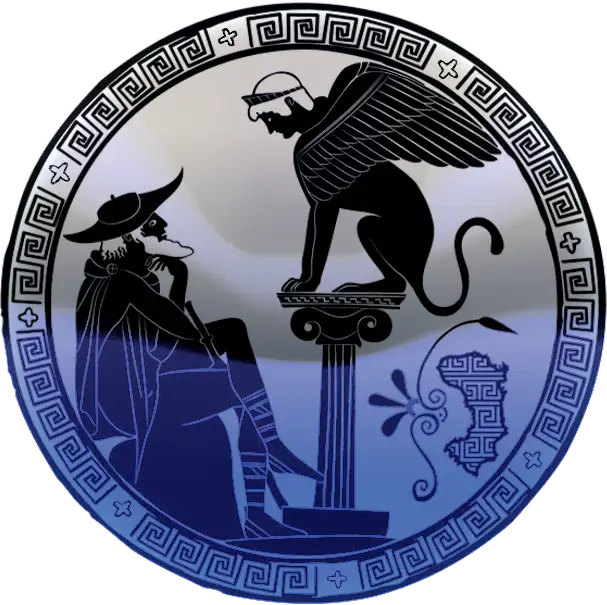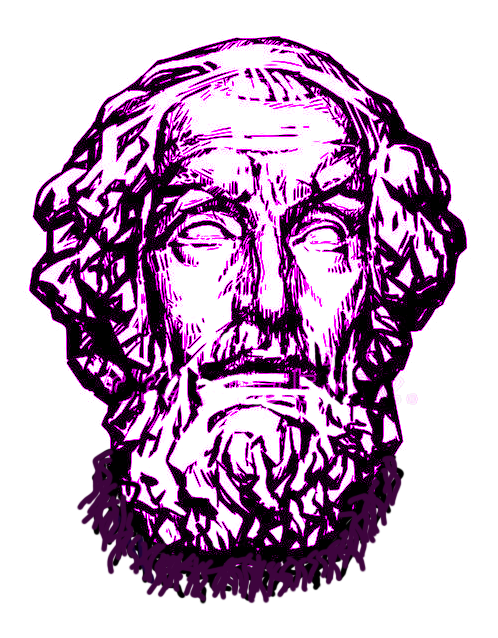Chios Island
Homer Homeland

Homer Hometown
The great epic poet of the ancient world, creator of the Iliad and the Odyssey, is connected to Chios island through a tradition that dates back to ancient times and is alive until nowadays.
Homer never mentioned his hometown sparkling thus a long dispute about it, as neither his biographers nor the researchers have agreed upon it. In this long dispute various Greek cities have claimed him, but Chios is always among them, and has become the predominant city claiming Homer’s origin. This connection is supported by a series of evidence from philological sources and archaeological findings to old local traditions.
All this evidence has prompted the travelers that visited the island after the 14th century to seek zealously for signs of Homer’s school, his house and his grave. The travelers’ research on Homer added to this tradition that connect the epic poet to the island – a tradition that the people of Chios are very proud of.

Homer’s Sight
In recent years, however, the emphasis has shifted away from the question of organic unity and authorship and more to the biographical details of the author and the dating of his works. Though literary and historical sources concerning Homer remain scant, much of the evidence, combined with new insights regarding the origin of written Greek, make a compelling case for the historic Homer and the traditional mid-eighth century date for the writing of The Iliad and The Odyssey. We will deal in turn, then, with three aspects of Homer’s life: his hometown, the broader historical context in which he worked, and the role he played in the final form of his texts.
One final question remains concerning the dating of The Odyssey: whether Homer himself wrote the text, or whether he did so with the aid of a personal scribe (an amanuensis). The significance of this question is usually viewed as twofold: first, in relation to the dating of the text and the origin of the Greek alphabet; and second, in relation to the traditional belief that Homer himself was blind. Concerning the first point, as demonstrated above, the mid-eighth century BC provides the perfect context for the ascension of the alphabet and the writing of The Odyssey, and therefore makes Homer’s use of the new alphabet at least plausible.
The answer to our question, then, relies primarily on our views concerning Homer’s sight (or lack thereof). Though in modern times sight alone does not imply the ability to read and write, in the ancient world blindness almost always meant that one could do neither of the other two. As you may recall, “the Pythian (Delphic) section of the Hymn to Apollo . . . speaks of him as a supreme poet who ‘dwelt in rocky Chios’ and was blind” (Grant 140). There is also a second candidate for a literary cameo as Demodocus, a blind bard in The Odyssey VIII.

The Legacy
Homer is said to have died on the island of Ios and his grave is supposedly located at Plakoto, today considered as a very popular tourist attraction on the island of Ios. Many say that his mother Clymene was from Ios and that is why he chose to spend his last days here. Some believe that he died of an illness while others believe that the locals had to kill him because he was unable to solve a riddle posed by them.
It probably will be a long time before anyone can actually solve the enigma of Homer. Even that however is not a given. But what we should be thankful for is the fact that his great epics have been passed down intact. Both Illiad and the Odyssey are considered as landmarks in human literature. The content, ideals and style of his epics formed the foundation of the Greek education in the age of Socrates, Aristotle and Plato and have influenced works of Western literature, including those of William Shakespeare while also inspiring multitudes of readers over the centuries. The sheer beauty and power of the imagery and the universality of the themes is comendable.
What must be applauded also is the fact that Homer had no literary work to guide him for literature itself was in its infancy when he created his works. He is thought as the world's first great writer and a model for other to imitate for centuries to come.

Superstar Homer
The Iliad and The Odyssey remain two of the most important literary works of all time, especially in the West. On one level, the questions addressed above may seem to undermine the truth, beauty and timelessness of the poet’s work. On another, though, by better understanding both Homer and the context in which he worked, we are better equipped to see the true genius of his epics. For this reason, we have surveyed the historical and literary evidence concerning Homer’s life and times, and the significant role Phoenician displacement had on both Homer’s personal story and the form his language and works ultimately assumed. In the end, we have confirmed our wonder and admiration of the blind bard of Chios, and strengthened our resolve as we fight our generation’s battles and take the long road home.

